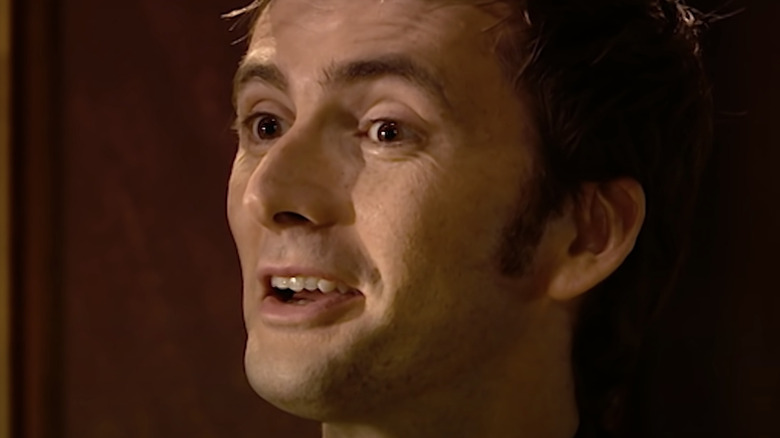The Real Reason Actors Leave Doctor Who After 3 Seasons
When you think of sci-fi television programming, the first show that comes to mind is likely the long-running BBC series "Doctor Who." The first episode aired the day after John F. Kennedy's assassination in 1963. Because this major world event dominated the news in the following days, the nascent sci-fi show was pushed off the radar. According to Wired, a decision was made to rerun the debut episode the following week. In doing so, viewers were properly introduced to the time-traveling Doctor (William Hartnell) and his granddaughter, Susan (Carole Ann Ford),
Though it was canceled in 1989 (via BBC) and unsuccessfully rebooted with a movie, "Doctor Who" made a comeback in 2005 with Christopher Eccleston's Ninth Doctor. Since then, the series has remained on the air, even celebrating its 50th anniversary with a movie-length episode starring David Tennant's Tenth Doctor, Matt Smith's Eleventh Doctor, and the War Doctor, played by the late John Hurt (via IMDb).
Thanks to the actors who've tackled the role of the Doctor, the BBC series is more popular than ever before. Each version of the titular Doctor brings something new to the show, including companions, enemies, and storylines. Jodie Whittaker made "Doctor Who" history as the first female incarnation of the character, replacing Peter Capaldi's Twelfth Doctor in 2017. The actress is giving fans one last hurrah with "Doctor Who: Flux," currently airing on BBCAmerica (via Radio Times), before she leaves the role after three seasons, per Entertainment Weekly.
Whittaker's departure raises the question as to why many of the actors playing the Doctor have decided to leave after the same amount of time. There are many reasons, including the fact that playing the Doctor is a more physical role than it seems. However, there is one key reason that stands out above the rest.
There is a fear around typecasting amongst Doctor Who actors
When an actor plays a certain character for a long period of time, it is quite common for them to be cast in similar roles in the future. Patrick Troughton, the "Doctor Who" actor who actually started what is now known as "Three-Season Rule," feared this would happen to him. As such, he told the producers immediately that he would not play the Second Doctor past three years. Troughton also advised Fifth Doctor actor Peter Davison to follow the rule as well, according to the BBC. By the time Colin Baker became the much darker Sixth Doctor, the policy seemed to have become cemented. As a result, this was one of the reasons the BBC let him go.
There is some logic to the fear of being typecast following an actor's stint on "Doctor Who." Tom Baker, known for playing the Fourth Doctor, stayed on the show for seven years. Because of this, it may have contributed to the actor's trouble in securing roles outside of the character. Following his time on the BBC show, he appeared in several "Doctor Who"-related productions, including Big Finish audio and even video games (via IMDb).
Tom Baker's experience, as well as the decisions of previous Doctors, have inspired modern actors to stick to three seasons. Both David Tennant and Matt Smith made sure to incorporate themselves in different roles to avoid only being associated with the Doctor. This may have played a part in landing roles on Amazon's "Good Omens" and HBO's "House of the Dragon," respectively. Now that Jodie Whittaker is stepping down from her role as the Doctor, she can try new things and immerse herself in many different characters.

